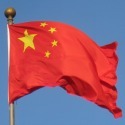
Just as Huawei was handing down yet another bumper result today, China Mobile was delivering a lesson in China telecom economics.
The big operator has just handed out a generous 37.1 billion yuan ($5.2 billion) in 5G contracts, with virtually all the work going to Huawei and smaller rival ZTE.
These are the prime contracts for phase 2 of China Mobile's accelerated 5G rollout, covering 28 provinces and an estimated 232,000 basestations, according to website C114.
The operator said it had contracted Huawei to build 133,000 basestations at a price of RMB21.4 billion and ZTE to deliver 66,700 units for RMB10.7 billion ($1.5 billion).
Ericsson won contracts worth RMB4.2 billion and small local vendor CICT landed deals worth RMB965 million ($136 million). Nokia reportedly bid but failed to win any of the contracts.
As the local industry likes to report it, Huawei accounted for 57.3% of the total value of the tender, ZTE 28.7%, Ericsson 11.5% and CICT 2.6%.
Want to know more about 5G? Check out our dedicated 5G content channel here on Light Reading.
To put this into context, last year Ericsson and Nokia both reported almost the same in China sales for the whole year: around $1.6 billion each.
Huawei will collect almost that amount from a single contract.
The vendor might have a good case for unfair treatment at the hands of the US, but it also gets the inside running in the world's biggest market, year in year out.
This is one of the peak years for China 5G construction.
The three operators and China Tower will pour around RMB200 billion ($28.2 billion) into 5G this year, with China Mobile expecting to tip in around RMB100 billion ($14.1 billion). (See The mysterious case of the vanishing Chinese customers.)
— Robert Clark, contributing editor, special to Light Reading
Read more about:
AsiaAbout the Author(s)
You May Also Like











